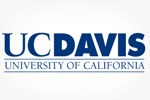Unprecedented and accelerating rates of biological invasion are creating a unique set of environmental, economic, and social challenges. Modern agricultural societies would not exist were it not for human-mediated introductions of crops and livestock. Yet, as a result of the globalization of human commerce and travel, invasions are rapidly… more »
Unprecedented and accelerating rates of biological invasion are creating a unique set of environmental, economic, and social challenges. Modern agricultural societies would not exist were it not for human-mediated introductions of crops and livestock. Yet, as a result of the globalization of human commerce and travel, invasions are rapidly and profoundly changing the environment. The effects of invasions are felt at all biological scales, from genes to ecosystems, with enormous ecological and economic consequences. From every perspective, biological invasions epitomize the rapidly growing array of environmental challenges that no single discipline or constituency can solve individually.
This IGERT award supports the establishment of a new multidisciplinary graduate program that includes trainers and students from ten multidisciplinary graduate groups and professional schools at UC Davis, as well as non-faculty participants from state, federal and national organizations who will strengthen ties to policymakers, legislators, regulators, and other stakeholders. In addition, the program emphasizes the global ramifications of invasions through the participation of international authorities, and provides support for international research collaborations and individual projects. Trainees will be required to satisfy the degree requirements of the graduate group to which they are admitted, as well as the specific requirements of the IGERT program that aim to build a multidisciplinary perspective and teamwork. Trainees supported for their dissertations must develop a project that integrates two or more of the IGERT core disciplines (life sciences, social sciences, law, humanities, and physical sciences), and have a similarly diverse guidance committee.
The formal training program begins with an integrative first-year foundation curriculum, consisting of a lecture/seminar series, discussion groups, and hands-on technical demonstrations. This foundation program will be followed by a second-year group collaborative research project, involving trainees and faculty, that analyzes an invaded habitat or ecosystem from biological, social, historical, economic, and legal perspectives, and develops a comprehensive management plan. This project will lead to an annual spring workshop, with participants from academia, the private and public sectors, and relevant stakeholders speaking directly to the problem addressed. Other key elements of the training program include requirements for collaborative internships outside the university and participation in an extensive mentorship network. This program will build multidisciplinary research teams that span the natural sciences, social sciences, engineering and humanities and that will train the next generation of environmental scientists to be conversant in the ethical, political, legal, and economic, and scientific issues pertinent to the analysis and remediation of biological invasions.
IGERT is an NSF-wide program intended to meet the challenges of educating Ph.D. scientists and engineers with the multidisciplinary backgrounds and the technical, professional, and personal skills needed for the career demands of the future. The program is intended to catalyze a cultural change in graduate education by establishing new, innovative models for graduate education and training in a fertile environment for collaborative research that transcends traditional disciplinary boundaries. In the fourth year of the program, awards are being made to twenty-two institutions for programs that collectively span all areas of science and engineering supported by NSF. The intellectual foci of this specific award reside in the Directorates for Biological Sciences; Social, Behavioral, and Economic Sciences; Mathematical and Physical Sciences; Engineering; and Education and Human Resources. « less
Project members' contributions to the library and showcase are listed here.





